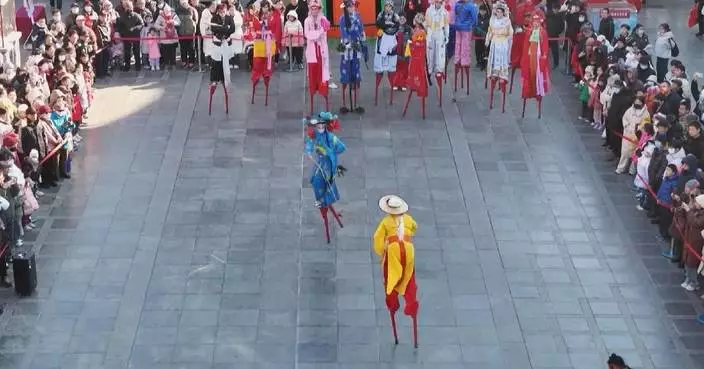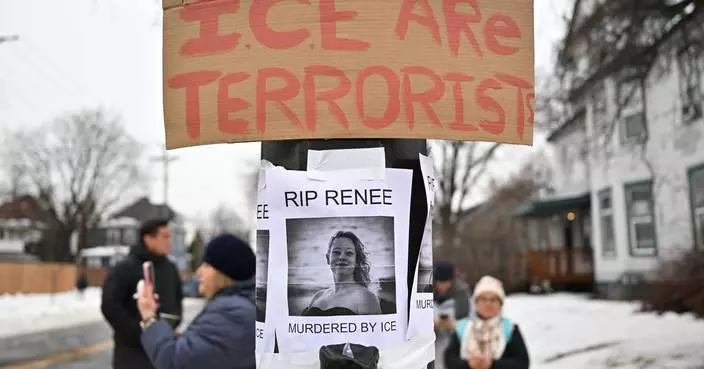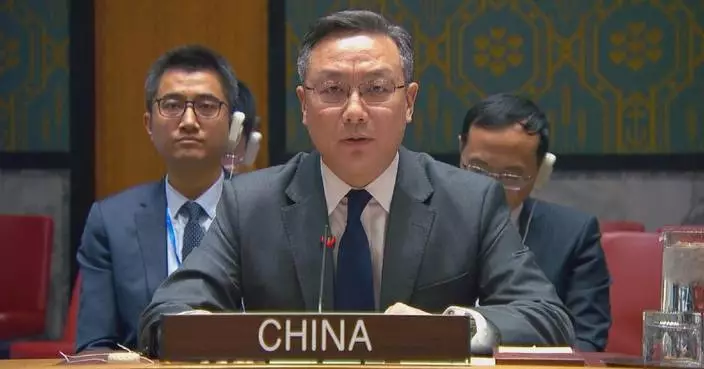Feature · News

Chinese shares close higher Friday as combined turnover tops 3 trln yuan

China expresses condolences over former Japanese ambassador's passing: spokesperson

Chinese navy hospital ship drills medical rescue in Atlantic waters
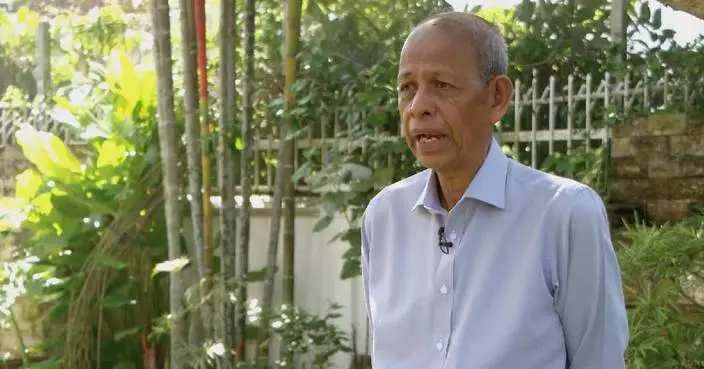
Xi's Global Governance Initiative 'timely' amid global shifts: former Malaysian ambassador

Irish prime minister says China visit aimed to deepen bilateral ties, shore up EU-China relations
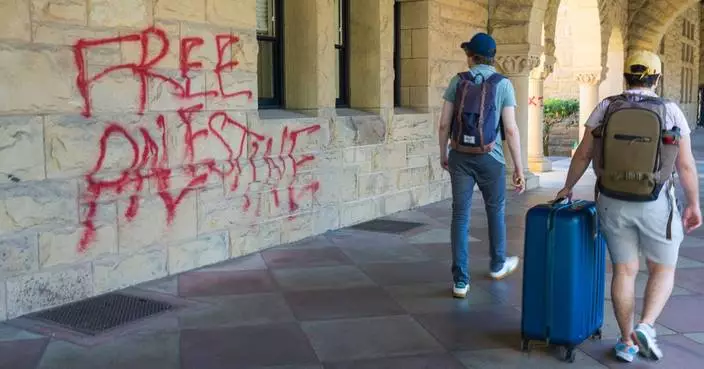
Trial begins for Stanford students for occupying offices in pro-Palestinian protest

Chinese robot makers gain global attention at top tech show in Las Vegas

BP China Insight: Danish MP: America's targeting of Greenland will only push Europe towards China

Meta lines up massive supply of nuclear power to energize AI data centers

AI listings boost Hong Kong market as Tokyo stocks rally on earnings: analyst

California homeowner rolls out 'unwelcome' mat for black bear living under his house

GM hit with $6 billion in charges as EV incentives cut and emissions standards fade

18 Temporary Cold Shelters Opened Amid Severe Weather for Those in Need

Musk's Grok chatbot restricts image generation after global backlash to sexualized deepfakes

CHP Urges Vulnerable Groups to Take Precautions Against Cold Weather Health Risks

As tensions flare in Minnesota, Treasury Secretary Bessent pushes a crackdown on fraud
Chinese robot makers gain global attention at top tech show in Las Vegas

BP China Insight: Danish MP: America's targeting of Greenland will only push Europe towards China

Meta lines up massive supply of nuclear power to energize AI data centers
AI listings boost Hong Kong market as Tokyo stocks rally on earnings: analyst
Chinese shares close higher Friday as combined turnover tops 3 trln yuan
China expresses condolences over former Japanese ambassador's passing: spokesperson
Chinese navy hospital ship drills medical rescue in Atlantic waters
Xi's Global Governance Initiative 'timely' amid global shifts: former Malaysian ambassador
Irish prime minister says China visit aimed to deepen bilateral ties, shore up EU-China relations

Trial begins for Stanford students for occupying offices in pro-Palestinian protest

California homeowner rolls out 'unwelcome' mat for black bear living under his house

GM hit with $6 billion in charges as EV incentives cut and emissions standards fade

18 Temporary Cold Shelters Opened Amid Severe Weather for Those in Need

Musk's Grok chatbot restricts image generation after global backlash to sexualized deepfakes

CHP Urges Vulnerable Groups to Take Precautions Against Cold Weather Health Risks

As tensions flare in Minnesota, Treasury Secretary Bessent pushes a crackdown on fraud
Feature·Bloggers

【Ariel】Who's Really Bankrolling “Stand with Hong Kong”?

【What Say You?】The Money Trail: Cardinal Zen's HK$26 Million Mystery

【What Say You?】Trump’s “Maduro Grab” Gets a Glossy Spin by the Usual Suspects

【What Say You?】Trump's Judicial Theater: Maduro's Fate Already Sealed

【Deep Throat】Trump's Venezuelan Oil Grab: Big Oil Not Playing Along?

The Most Laughable Lie of the New Year: Jimmy Lai's "Grave Illness" Falls Apart Under Five Hard Facts

How the US could take over Greenland and the potential challenges
- A battered Cuba braces for aftershocks as US seizures of oil tankers linked to Venezuela surge
- New video of fatal Minnesota ICE shooting, from officer's perspective, brings fresh scrutiny
- North Korea vows response as it accuses the South of flying drones across the border
- Trump administration can’t block child care money for 5 Democratic-led states for now, judge says
- The aftermath of the fatal shooting of Renee Good by an ICE agent in photos
- What to know as Trump targets child care and social service funding to 5 states led by Democrats
- Photos show relatives waiting outside prisons as Venezuela frees a handful of detainees
- Russia uses its new ballistic missile in a major attack on Ukraine and a warning to West
- New York attorney general sues Trump administration over offshore wind project freeze

Hamas ready for complete withdrawal from Gaza governmental scene: official
- Chinese FM holds talks with Tanzanian counterpart
- Chinese premier stresses coordination of fiscal, financial policies to boost demand
- Film technologies drive cross-industry growth in China
- Chinese LLM developers' listing boom signals shift to commercial application
- Over 200,000 Macao, HK vehicles registered for direct travel to mainland
- CMG unveils 2026 flagship drama lineup
- 2026 Beijing Book Fair opens
- China stock markets wrap up buoyant first week of 2026: CGTN market analyst
- Chinese vice premier meets Disney CEO

Etiqa’s Project Firefly Reinforces Mangrove Ecosystem in Sungai Panjang in Collaboration with Malaysian Nature Society
- BiLight Dazzles CES 2026: Flexible Perovskite PV Leads Green Tech Wave, Forges Global Partnerships
- USA Truck Returns to Private Ownership with Arkansas-Based UTAC, LLC, Positioned for Accelerated Growth
- Wall Street rises to records after the unemployment rate improves
- ApexVision Debuts at CES 2026: Guide Sensmart Ushers in the Ultra-Clarity Era of Thermal Imaging
- Advance Auto Parts Names OSRAM Sylvania Inc. Global 2025 Vendor Partner of the Year
- TCL Earns Multiple CES 2026 Awards for Breakthrough Innovations Across TV, Mobile, and Smart Home Categories
- INVESTOR ALERT: Faruqi & Faruqi, LLP Investigates Claims on Behalf of Investors of Aquestive Therapeutics
- Guide Sensmart Showcases Groundbreaking ApexVision Technology at CES 2026
- FINAL DEADLINE ALERT: Faruqi & Faruqi Reminds Telix Investors of the Pending Class Action Lawsuit with a Lead Plaintiff Deadline of January 9, 2026

From climbing vacuums to cyber pets: Some highlights of CES 2026
- Some flu measures decline, but it's not clear this severe season has peaked
- NASA, in a rare move, cuts space station mission short after an astronaut's medical issue
- 'Worst in Show' CES products include AI refrigerators, AI companions and AI doorbells
- How Americans feel about crowdfunding websites like GoFundMe, according to an AP-NORC poll
- Gmail adds new AI features, turning it into a personal assistant
- Dose of uncertainty: Experts wary of AI health gadgets at CES
- Entertainment leaders amp up discussions about AI, creators and innovative tech at CES 2026
- At CES, auto and tech companies transform cars into proactive companions
- The coolest technology from Day 2 of CES 2026

Actor Timothy Busfield accused of child sex abuse in New Mexico
- Hollywood stars gather for an all-winners celebration at the American Film Institute Awards
- Laura Dave's sequel to 'The Last Thing He Told Me' reveals all
- Judge dismisses Salt-N-Pepa's lawsuit to reclaim master recordings from Universal Music Group
- Rapper Fetty Wap released from prison early in drug trafficking case
- David Bowie's childhood home in London is set to open to the public next year
- Will K-pop earn its first Grammy in 2026? Maybe, but it's complicated
- Photos show Cirque du Soleil rehearsing for upcoming show 'Ovo,' on the life cycle of insects
- Sarah Jessica Parker gets Golden Globes' Carol Burnett Award and Helen Mirren gets DeMille prize
- The Golden Globes are this week. Here's what to know about the first major show of awards season

Giannis stops LeBron twice in the final minute as the Bucks rally to beat the Lakers 105-101
- Trail Blazers beat Rockets 111-105 to extend winning streak to 5
- No. 1 Indiana adds to CFP dominance with crushing 56-22 Peach Bowl semifinal win over No. 5 Oregon
- National championship game will be a homecoming for Indiana QB Fernando Mendoza
- Stephen Curry has 27 points and season-best 10 assists as Warriors beat Kings 137-103
- WNBA and players' union fail to reach new CBA, negotiations continue without extension
- Amber Glenn wins third straight US Figure Skating title, topping Alysa Liu with brilliant free skate
- Dante Moore and the Oregon Ducks self-destruct in 56-22 Peach Bowl loss to No. 1 Indiana
- Ticket prices soar for Indiana-Miami College Football Playoff national championship game
- Booker scores 31 points, Brooks adds 27 as Suns hold on to beat Knicks 112-107

Hong Kong Film Festival Launches in Copenhagen, Showcasing Local Cinema and Cultural Exchange
- Health Authorities Investigate Food Poisoning Linked to School Lunches Affecting 39 Students in Two Primary Schools
- Enhanced medical fee waivers benefit over 49,000 patients, expanding support for low-income families and critical cases
- Immigration Department Arrests 12 Illegal Workers in Territory-wide Operations Contribute, Twilight, and Flabbergast
- FSD Implements New Regulations for Enhanced Fire Safety Transparency and Management
- A Fire Broke out in Lam Tin Estate, Suspected to be Caused by a Short Circuit
- HKMA Warns Public About Recent Bank-Related Scams and Fraudulent Websites
- Exhibition Group Limited Proudly Announces the Launch of Three Major Consumer and Thematic Exhibitions Scheduled for January 2026
- Shau Kei Wan Lot 860 to Be Sold by Public Tender Starting January 16
- Health Authorities Warn of Rising Dengue and Chikungunya Fever Risks Amid Favorable Mosquito Breeding Conditions

U.S. dollar ticks up
- Crude futures settle higher
- U.S. stocks close higher on Friday
- IOMed fills institutional gap in international mediation: secretary-general
- Venezuelans express anger over US military strikes
- Venezuela initiates "exploratory" diplomatic process with US after capture of Maduro
- Trump says 'I don't need international law,' highlighting urgency for reforming global governance: CGTN poll
- EU, Finnish officials express concerns over US remarks on Greenland
- Venezuela's acting president says country not "subjugated" after U.S. assault
- Lebanon residents say Israeli airstrikes are destroying their lives
Category · News

Giannis stops LeBron twice in the final minute as the Bucks rally to beat the Lakers 105-101

Trail Blazers beat Rockets 111-105 to extend winning streak to 5

Hamas ready for complete withdrawal from Gaza governmental scene: official

No. 1 Indiana adds to CFP dominance with crushing 56-22 Peach Bowl semifinal win over No. 5 Oregon

National championship game will be a homecoming for Indiana QB Fernando Mendoza

Stephen Curry has 27 points and season-best 10 assists as Warriors beat Kings 137-103

WNBA and players' union fail to reach new CBA, negotiations continue without extension

How the US could take over Greenland and the potential challenges

A battered Cuba braces for aftershocks as US seizures of oil tankers linked to Venezuela surge

Amber Glenn wins third straight US Figure Skating title, topping Alysa Liu with brilliant free skate

Dante Moore and the Oregon Ducks self-destruct in 56-22 Peach Bowl loss to No. 1 Indiana

Etiqa’s Project Firefly Reinforces Mangrove Ecosystem in Sungai Panjang in Collaboration with Malaysian Nature Society

Ticket prices soar for Indiana-Miami College Football Playoff national championship game

Booker scores 31 points, Brooks adds 27 as Suns hold on to beat Knicks 112-107
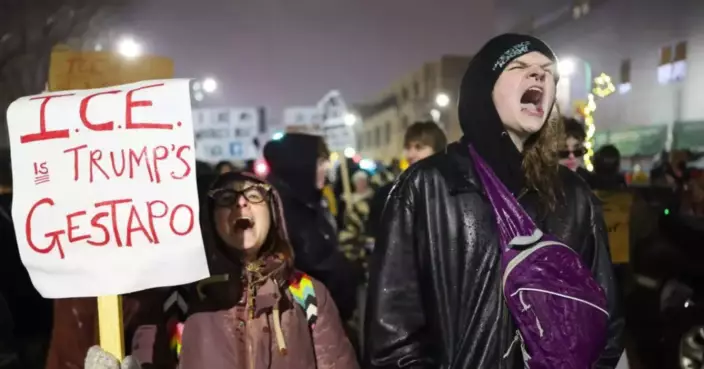
New video of fatal Minnesota ICE shooting, from officer's perspective, brings fresh scrutiny

Scheifele's two goals help Jets snap 11-game losing streak with 5-1 win over Kings

Nick Schmaltz scores twice to power Mammoth past the Blues, 4-2

North Korea vows response as it accuses the South of flying drones across the border

Blackhawks center Connor Bedard returns from right shoulder injury

Dyson Daniels has a triple-double and Hawks use big fourth quarter to beat Nuggets 110-87

Miami returns home, starts process of getting ready for CFP title game
U.S. dollar ticks up
Crude futures settle higher
U.S. stocks close higher on Friday

Jalen Williams and Kenrich Williams help Thunder rally past Grizzlies 117-116
Chinese FM holds talks with Tanzanian counterpart

Actor Timothy Busfield accused of child sex abuse in New Mexico

Belinda Bencic puts Switzerland up 1-0 over Belgium in the United Cup semifinals

Scheifele's two goals help Jets snap 11-game losing streak with 5-1 win over Kings

Aryna Sabalenka advances to the Brisbane International final after beating Muchová

Trump administration can’t block child care money for 5 Democratic-led states for now, judge says
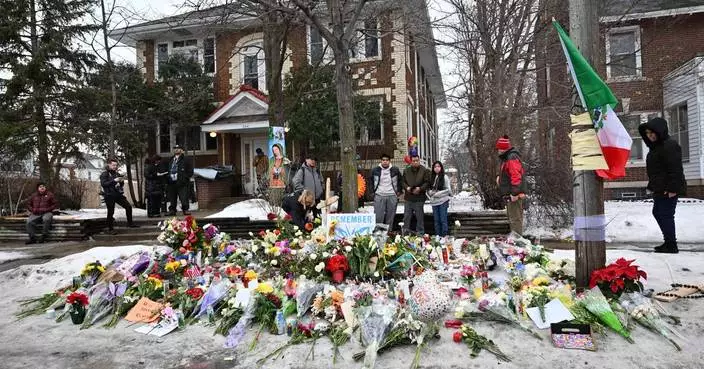
The aftermath of the fatal shooting of Renee Good by an ICE agent in photos

Forwards Donavan Phillip of North Carolina State and Jasmine Aikey of Stanford win Hermann Trophies

McMichael and Ovechkin score as the Capitals beat the depleted Blackhawks 5-1

Mexican star Hirving `Chucky' Lozano isn't returning to San Diego FC after a rocky debut MLS season
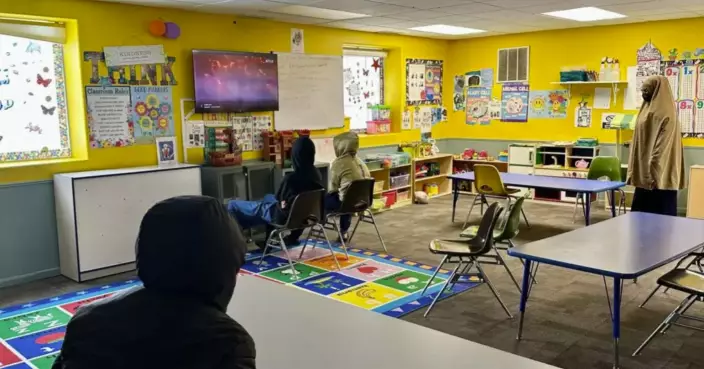
What to know as Trump targets child care and social service funding to 5 states led by Democrats

Charge beat the Goldeneyes 4-2, extend franchise-record win streak to 5 games

Hollywood stars gather for an all-winners celebration at the American Film Institute Awards

Trae Young has a fresh start in Washington. His first order of business is getting healthy
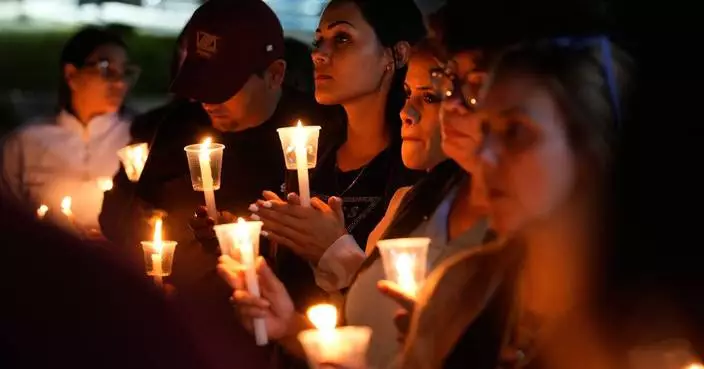
Photos show relatives waiting outside prisons as Venezuela frees a handful of detainees
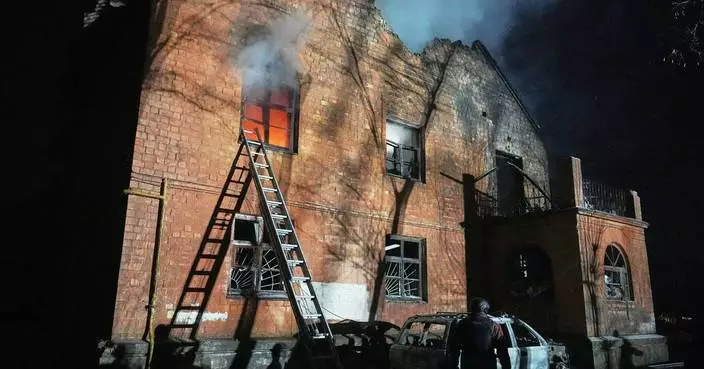
Russia uses its new ballistic missile in a major attack on Ukraine and a warning to West

Harden scores 31, Leonard has 26 and the Clippers beat the Nets 121-105

Maxey's 29 points lead 76ers to victory over Magic despite poor 3-point shooting

Pritchard scores 28 points as the Celtics beat the short-handed Raptors 125-117
IOMed fills institutional gap in international mediation: secretary-general
Venezuelans express anger over US military strikes

New York attorney general sues Trump administration over offshore wind project freeze

Murphy scores 35, Queen has triple-double as Pelicans snap 9-game skid with 128-107 win over Wizards

BiLight Dazzles CES 2026: Flexible Perovskite PV Leads Green Tech Wave, Forges Global Partnerships

US intercepts fifth sanctioned tanker as it exerts control over Venezuelan oil distribution
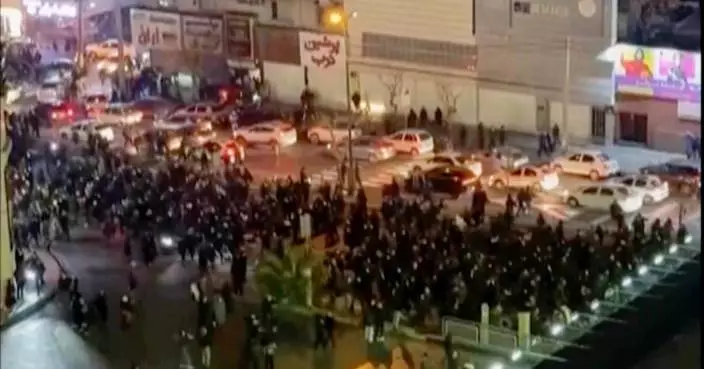
Iran supreme leader signals upcoming crackdown on protesters 'ruining their own streets' for Trump

No, he wasn't just holding back: Sean Payton's candid take on Broncos' offensive struggles

US and Venezuela take first steps toward restoring relations after Maduro's ouster

Commanders are promoting David Blough to offensive coordinator, AP source says
Venezuela initiates "exploratory" diplomatic process with US after capture of Maduro

Titans continue coaching search interviewing former Dallas coach Jason Garrett, AP source says

The Latest: US military says its forces intercept another sanctioned oil tanker in the Caribbean

Former Green Bay Packers executive Jon-Eric Sullivan agrees to become Miami Dolphins GM

College enforcement group voices 'serious concerns' with spiraling transfer portal

Last serve: Olympic volleyball star Jordan Larson announces this is her final season playing
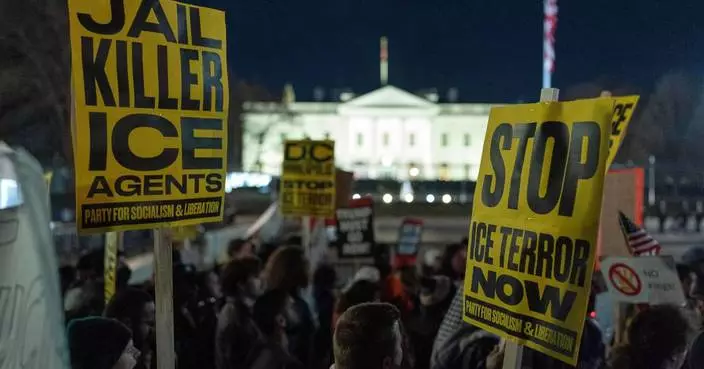
Minneapolis schools offer remote learning as tensions rise over federal immigration enforcement

Trump promises oil executives 'total safety' if they invest in Venezuela after Maduro ouster

Mavs' oft-injured Anthony Davis to miss time with ligament damage in hand

Head of FBI's New York field office to serve as co-deputy director after Bongino's departure

Olympic organizers '100%' confident NHL will play in Milan Cortina despite arena delays

Free agent outfielder Max Kepler suspended 80 games by MLB following positive drug test

After Venezuela frees 1% of prisoners, families and activists strain to stay hopeful

Wounded veterans cycle through Florida Keys for annual Soldier Ride
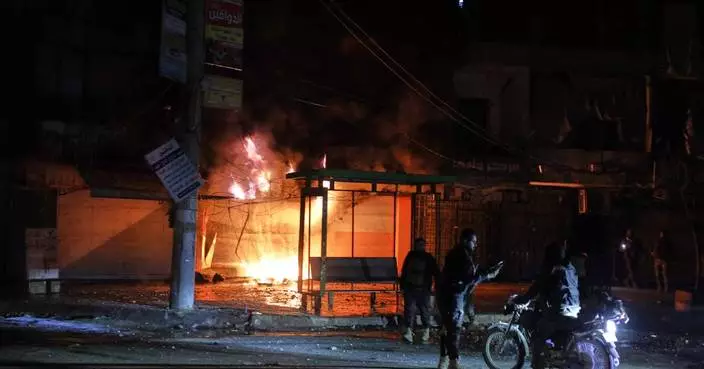
Ceasefire quickly unravels after days of clashes between Syrian security forces and Kurdish fighters

Fractures are starting to show in Trump's GOP at the start of this election year

Wrexham knocks out Nottingham Forest on penalties to move into FA Cup fourth round

Trump wears a new 'Happy Trump' lapel pin, but insists he's never happy

49ers' Trent Williams and Ricky Pearsall questionable for wild-card game against Eagles

Trump brushes off early posting of confidential jobs figures

Dispute erupts over who will represent former Venezuelan leader Nicolás Maduro in court

Team Canada unveils experienced women's hockey Olympic roster, led by 'Captain Clutch' Poulin
Chinese premier stresses coordination of fiscal, financial policies to boost demand

Cleveland Browns interview Aden Durde and Dan Pitcher for the head coach opening

Bengals' Duke Tobin defends front office after disappointing season

USA Truck Returns to Private Ownership with Arkansas-Based UTAC, LLC, Positioned for Accelerated Growth
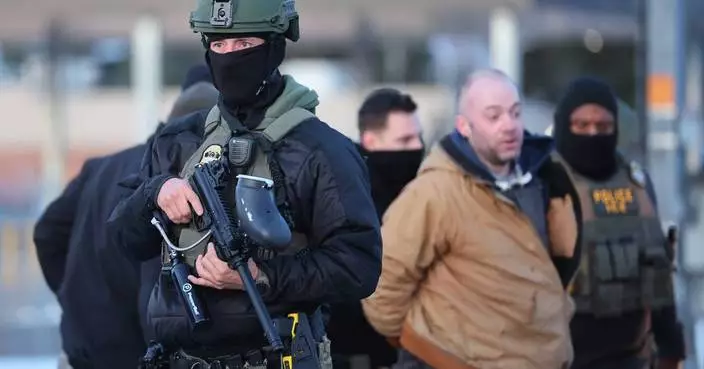
The Latest: Minnesota prosecutor asks public to share Renee Good shooting evidence with her office

Díaz scores in fifth straight game as Morocco joins Senegal in Africa Cup semifinals
Film technologies drive cross-industry growth in China

Frankfurt share new year spoils with Dortmund in thrilling Bundesliga draw


